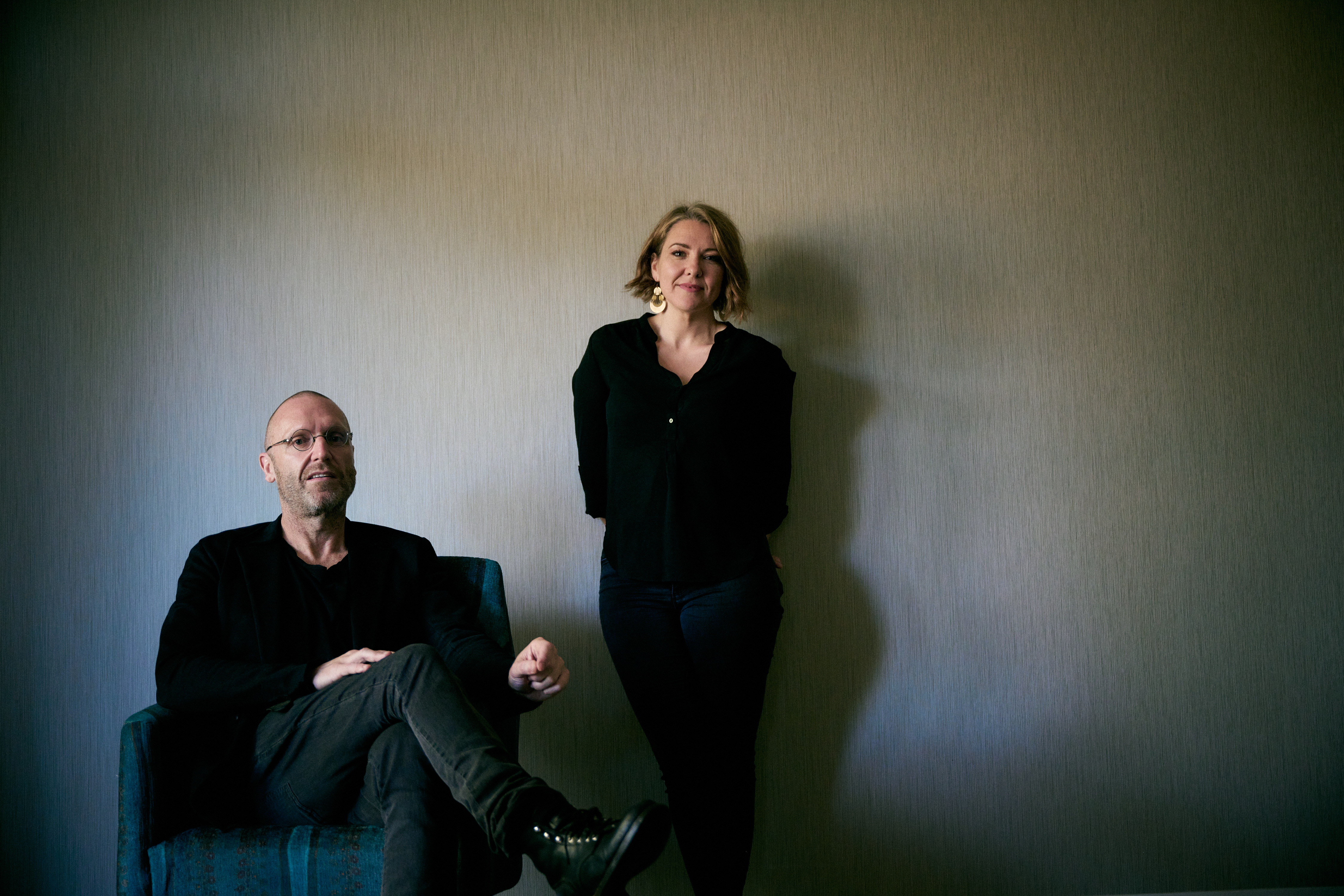Study investigating psychedelic-assisted psychotherapy offers new hope for terminally ill patients
.jpg)
Above: Simone Felix with son, Raphael
Simone Felix felt like an observer in the room when she was told by her doctor that she had breast cancer.
“I guess that is the impact of trauma; you don’t feel like you are in your own skin,” said Simone, who was only 39 at the time and still breastfeeding her son, Raphael.
“I was told the lump was cancerous and in my lymph nodes but hadn’t spread. All the words people use in novels, ‘it was like being gut-punched’, ‘her blood ran cold’; suddenly became my story.”
Simone found she became more concerned about how the people around her were coping than about herself – the doctor who had to deliver the difficult news, her mother who stopped her mid-sentence as she tried to tell her, and her husband, Sam, who was still reeling from the loss of his father to cancer two years before Simone's diagnosis.
“I felt guilty in my mind for bringing cancer back into Sam’s life. I found myself consumed with comforting others instead of learning to sit with my thoughts and to allow myself to be the focus,” she said.
When Simone learned her cancer was late stage, she collapsed to her knees and shook uncontrollably as Sam tried to console her.
“That was when the spotlight shifted for me, when I realised that I wasn’t going to be Raphael’s Mum,” recalled Simone, who only five days later was in a chair receiving her first round of chemotherapy.
Faced with challenging times
During her treatment, Simone’s husband’s alcohol addiction started spiralling. He was hospitalised on multiple occasions and eventually admitted to a rehabilitation centre.
The couple separated and Simone became deeply anxious about their son’s future.
“I needed a plan for Rapha – who was going to care for him? He had two ill parents, and my mum was nearly 70 and legally blind,” she said
“Every conversation with someone became like an interview in my head. Could it be you? Could you look after my son? Can I trust you if Sam is unable to manage things after his treatment?
“I looked for ways to build Rapha’s resilience. Every time there was a milestone, I’d exhale and take a breath, but it was never for very long.”
Simone adopted a clinical approach to life and threw her energy into making things financially sound for her son’s future.
“It was a period of high anxiety, and I was on autopilot, just going through the motions of what needed to be done.”
Over the course of the chemotherapy treatment, the lump in her breast slowly disappeared and eventually, showed no evidence of disease.
“I handled the news with a cautious optimism because I knew it would come back, but I was defying the odds for now,” said Simone.
In looking for ways to manage her stress, Simone embraced breathwork and yoga, but felt there was still something missing.
She had heard from a couple of friends about a St Vincent’s-led research study investigating the use of psilocybin in conjunction with psychotherapy. The trial’s aim was to potentially offer an effective treatment for the death anxiety and depression often experienced by terminally ill patients.
Simone was one of 35 patients who participated in the trial, with the treatment phase finishing in April 2023.
The trial at St Vincent’s Hospital Melbourne (SVHM) formed part of a first-of-its-kind study undertaken by SVHM clinical psychologist, Dr Margaret Ross, who was the study’s Lead Therapist and Chief Principal Investigator, and SVHM’s Medical Director of Psychosocial Cancer, Dr Justin Dwyer.

Above (L to R) Dr Justin Dwyer and Dr Margaret Ross
Embracing a fresh outlook
When Simone first stepped into the dosing room to undergo treatment as part of the trial, she recalled she’d been struggling with issues of trust and letting people see the real her.
“I wanted people to see the perfect version of me, the confident me, even in this time when I needed them, too,” Simone said.
The psychedelic-assisted therapy brought out a sense of acceptance for Simone.
“What I learned was that the past version of me craved external validation but the real version of me just needs my approval. The treatment made me more compassionate towards myself. It gave me the keys to my life; to truly live as my own main character and not live by the opinions of others,” said Simone.
“It showed me that I am still here and just because things are hard and tragic, it doesn't mean there's no room for beauty and silliness. I'm still in the dance. The trial experience opened the door for me to be at peace with who I am now and to embrace the time I have been gifted.”
Note: The patient treatment phase of the clinical trial commenced in 2019 and concluded in April 2023. The study was completed in October last year.
.jpg)
Above: Simone Felix with son, Raphael